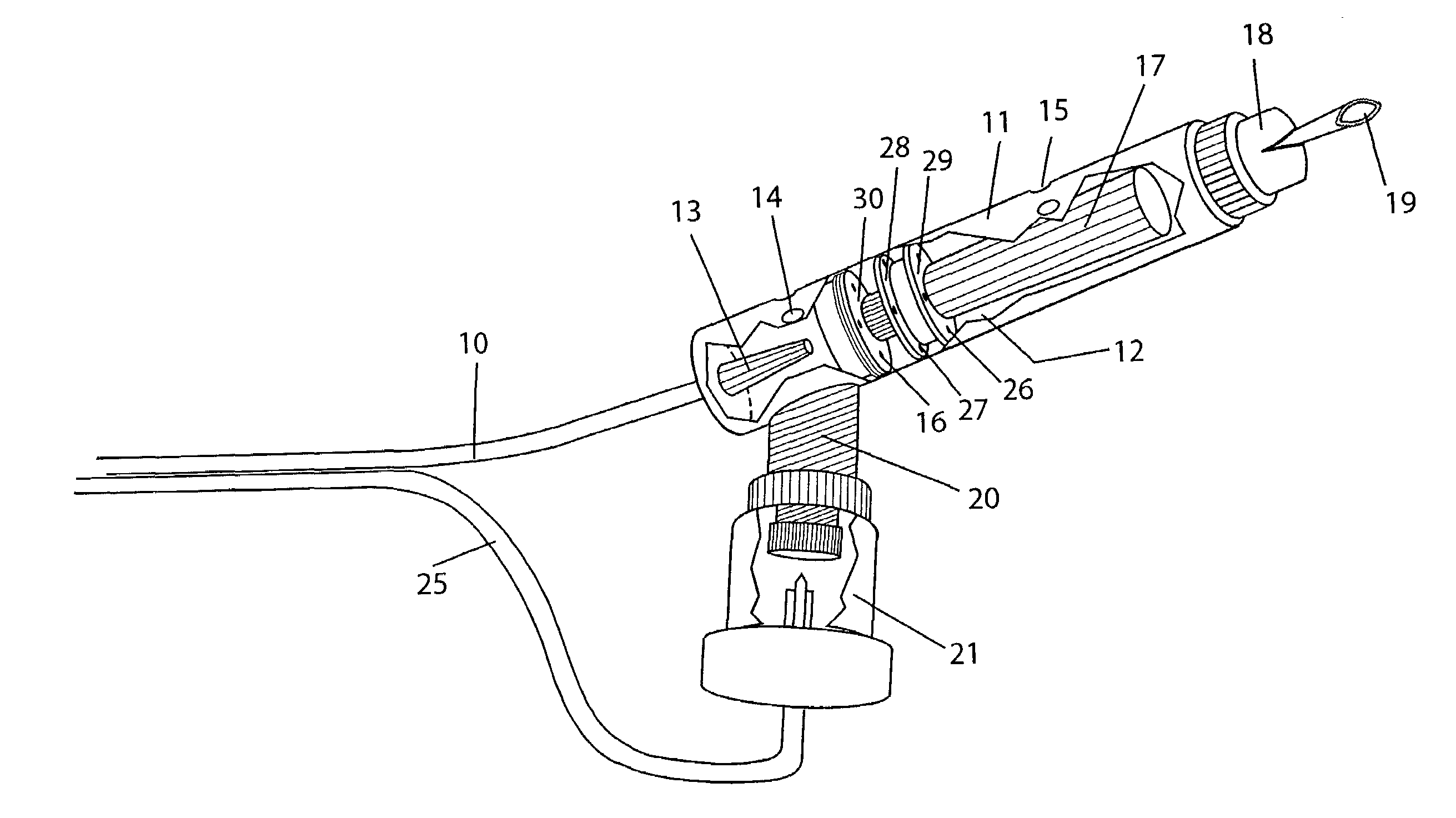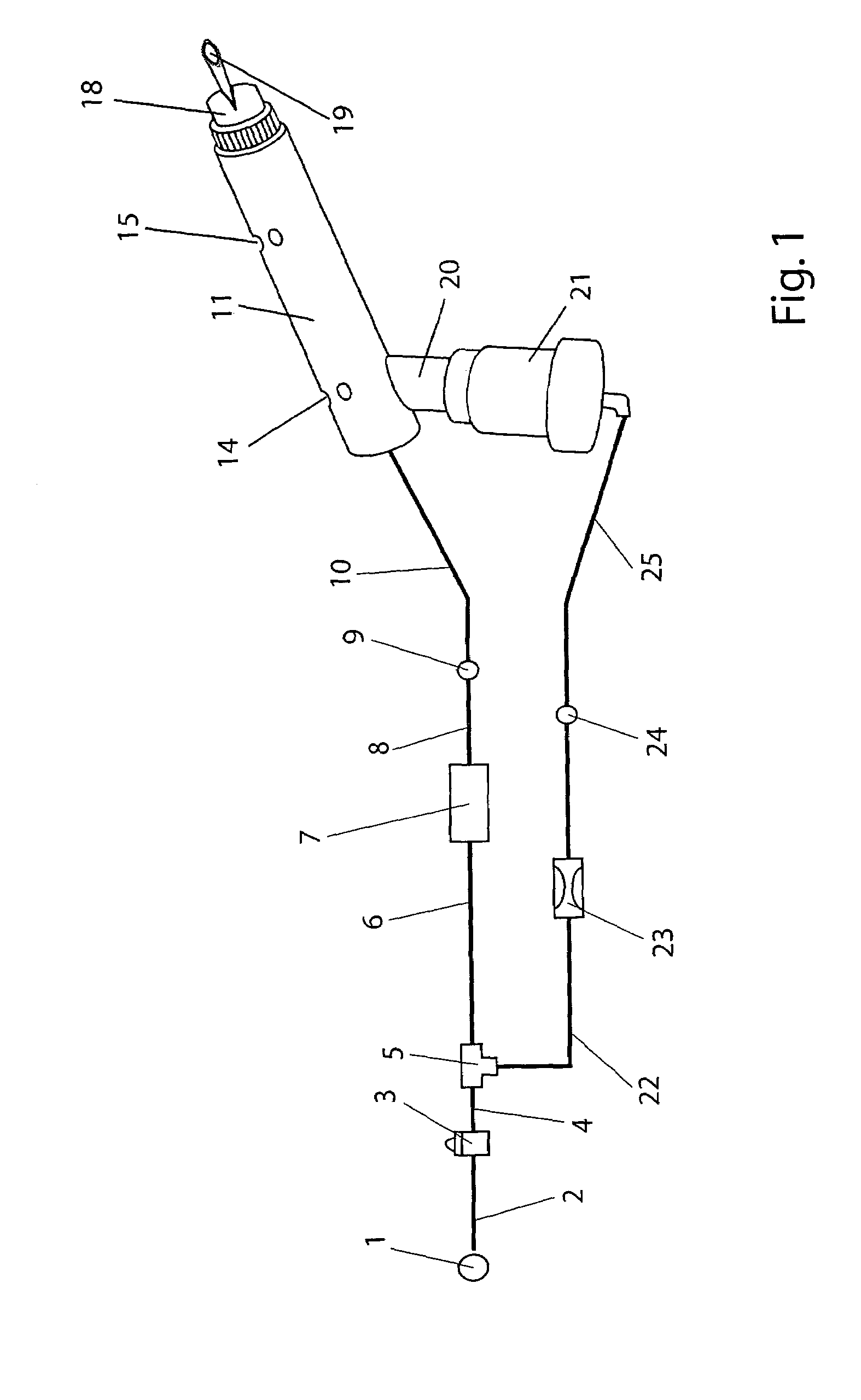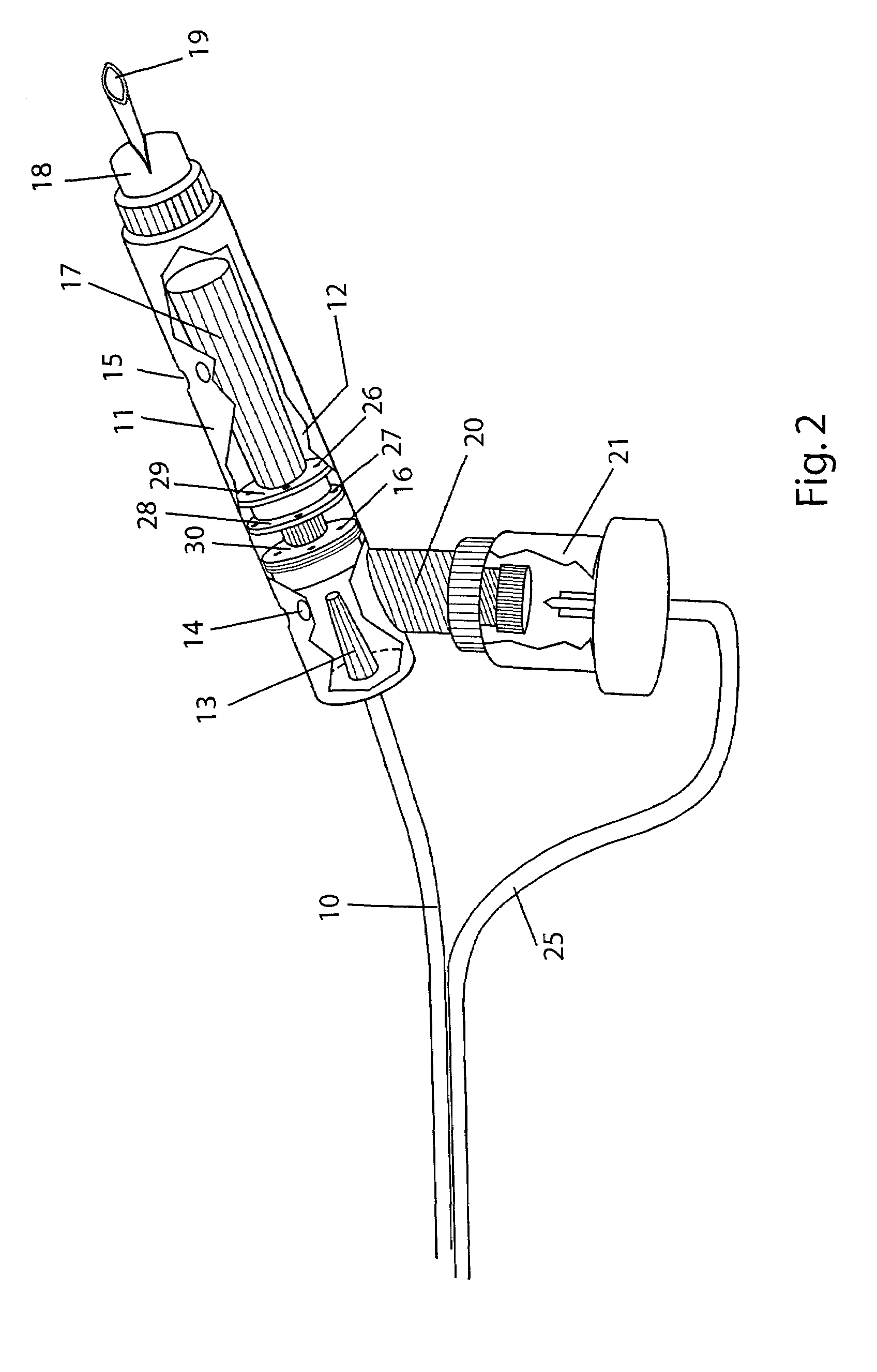Continuous high-frequency oscillation breathing treatment apparatus
a high-frequency oscillation, breathing treatment technology, applied in mechanical devices, valves, respirators, etc., can solve the problems of affecting the normal ability of people to remove secretions, increasing the risk of pulmonary neoplasm, and hindering the gas exchange ability of the lungs
- Summary
- Abstract
- Description
- Claims
- Application Information
AI Technical Summary
Benefits of technology
Problems solved by technology
Method used
Image
Examples
Embodiment Construction
[0074]FIG. 1 shows a schematic diagram of a continuous high-frequency oscillation breathing treatment apparatus comprising a source of pressurized gas attached to a source gas 1, a gas supply tube 2, a reduction regulator 3, a flow interrupter valve 7, and a patient interface circuit comprised of circuit tubes 10 and 25, a breathing head assembly 11 and a nebulizer 21. Source gas 1 connects to pressure reduction regulator 3 by means of a source gas supply tube 2. Pressure reduction regulator 3 is connected via small a bore (⅛″ ID) tube 4 to connector tee 5. One end of connector tee 5 attaches to tube 22 and the other end of connector tee 5 attaches to tube 6.
[0075]A tube 22, which has within it a reducing orifice 23, connects by one end to connector tee 5 and by the other end to circuit connector 24. Circuit tube 25 connects by one end to circuit connector 24 and by the other end to nebulizer 21.
[0076]Tube 6 connects by one end to connector tee 5 and by the other end to flow interru...
PUM
 Login to View More
Login to View More Abstract
Description
Claims
Application Information
 Login to View More
Login to View More - R&D
- Intellectual Property
- Life Sciences
- Materials
- Tech Scout
- Unparalleled Data Quality
- Higher Quality Content
- 60% Fewer Hallucinations
Browse by: Latest US Patents, China's latest patents, Technical Efficacy Thesaurus, Application Domain, Technology Topic, Popular Technical Reports.
© 2025 PatSnap. All rights reserved.Legal|Privacy policy|Modern Slavery Act Transparency Statement|Sitemap|About US| Contact US: help@patsnap.com



